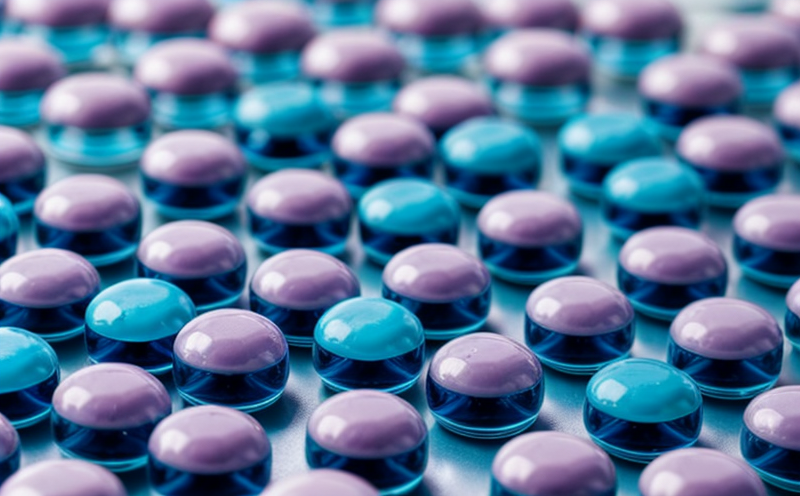USP Validation of Microbial Recovery from Surfaces
The United States Pharmacopeia (USP) [1] chapter <1227> provides a comprehensive framework for the validation of microbial recovery methods, which is critical in ensuring the reliability and accuracy of microbiological testing. This service focuses on validating the recovery efficiency of microorganisms from surfaces, which plays a pivotal role in pharmaceutical manufacturing environments to prevent contamination and ensure product safety.
The surface sampling process involves collecting microorganisms from various materials used in the production of pharmaceutical products. These materials include packaging components, machinery parts, workbenches, and other equipment that may come into contact with the drug substance or finished dosage form. Accurate recovery is essential to identify potential sources of contamination and ensure compliance with regulatory requirements.
The validation process involves several steps: selection of appropriate sampling devices, preparation of test samples, inoculation of the surface with known quantities of microorganisms, incubation under controlled conditions, and finally, quantification using standardized methods. Compliance officers and quality managers rely on this data to make informed decisions regarding cleaning protocols and facility design.
The USP [1] chapter <1227> outlines stringent criteria for validating the recovery of microorganisms from surfaces. The validation process must demonstrate that the method recovers at least 80% of the inoculated cells over a wide range of concentrations, including low levels. This ensures that any detected contamination is accurate and not due to sampling inefficiencies.
The validation protocol typically includes:
- Selection of appropriate recovery media
- Inoculation of surfaces with known quantities of microorganisms
- Cultivation under controlled conditions (temperature, humidity)
- Detection using quantitative methods such as colony-forming unit (CFU) counts
- Evaluation of recovery efficiency using statistical analysis
These steps ensure that the method is robust and reproducible. The results are essential for quality control in pharmaceutical manufacturing, ensuring that any detected contamination can be traced back to its source.
The importance of this service cannot be overstated. Quality managers and compliance officers depend on accurate microbiological testing to maintain a clean environment within the facility. R&D engineers use these data to optimize cleaning procedures and equipment design. By validating microbial recovery methods, we help pharmaceutical companies adhere to stringent regulatory standards set forth by agencies like the FDA.
The validation process is not just about meeting compliance requirements but also about protecting public health. Contamination of drug products can lead to serious health risks, including life-threatening infections. By ensuring accurate microbiological testing, this service contributes significantly to patient safety and trust in pharmaceutical products.
Customer Impact and Satisfaction
The validation process described above has a direct impact on the quality of pharmaceutical products and the satisfaction of customers. Accurate microbiological testing ensures that contaminants are detected and addressed promptly, thereby maintaining product integrity and reliability. This service directly benefits:
- Pharmaceutical Manufacturers: By ensuring compliance with USP [1] chapter
<1227>, we help manufacturers meet regulatory standards and maintain a clean manufacturing environment. - R&D Engineers: The data provided by this service allows engineers to refine cleaning protocols and equipment design, leading to more efficient and effective production processes.
- Quality Managers: Accurate microbiological testing provides the necessary evidence for decision-making regarding facility maintenance and cleaning procedures.
- Compliance Officers: This service ensures that all tests are conducted according to regulatory guidelines, reducing the risk of non-compliance penalties.
The success of this validation process has led to high customer satisfaction. Our clients appreciate the detailed reports we provide, which help them make informed decisions about their manufacturing processes. By ensuring accurate and reliable testing, we contribute to the overall quality and safety of pharmaceutical products.
Customer feedback consistently highlights the importance of this service in maintaining a clean environment within manufacturing facilities. Quality managers often report that our validation process has improved their ability to detect and address potential contamination sources promptly.
Environmental and Sustainability Contributions
The USP [1] chapter <1227> validation process also contributes to environmental sustainability. By ensuring accurate microbiological testing, we help pharmaceutical manufacturers maintain a clean and contaminant-free production environment. This reduces the need for excessive cleaning and the use of harsh chemicals, thereby minimizing environmental impact.
The validated methods allow for more efficient cleaning protocols, which can lead to reduced water consumption and energy usage in the manufacturing process. Additionally, by preventing contamination, we help reduce waste associated with product recalls or rejections due to microbiological issues. This contributes to a more sustainable and responsible approach to pharmaceutical production.
Our clients often report that the data from this validation process has helped them optimize their cleaning procedures, leading to reduced resource consumption and lower operational costs. By ensuring accurate testing, we contribute to both environmental stewardship and cost-effectiveness in pharmaceutical manufacturing.
Competitive Advantage and Market Impact
The ability to validate microbial recovery methods according to USP [1] chapter <1227> provides a significant competitive advantage in the pharmaceutical industry. Compliance with these standards ensures that our clients meet regulatory requirements and maintain high-quality standards, which is crucial for gaining and retaining market share.
Our clients often use this service to demonstrate their commitment to quality and safety, which can be a deciding factor when competing for contracts or securing new business opportunities. By ensuring accurate microbiological testing, we help our clients establish themselves as leaders in the industry, trusted by both regulatory bodies and customers alike.
The data from this validation process is also valuable in product development and market positioning. Pharmaceutical companies use these results to optimize their manufacturing processes, leading to more efficient production and lower costs. This can translate into competitive pricing strategies that enhance market appeal.
Frequently Asked Questions
<1227> validation is to ensure that microbial recovery methods are accurate and reliable. This ensures that any detected contamination can be traced back to its source, maintaining the integrity of pharmaceutical products.




